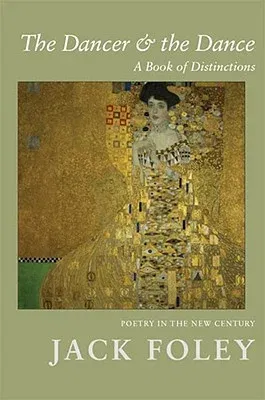Jack FoleyÆs The Dancer and the Dance: A Book of Distinctions
deliberately challenges many conventional ways of thinking about poetry.
Though extremely scholarly and aware of the \u201ctradition, \u201d
Foley offers readings rooted in a consciousness which is simultaneously
non academic and open to the new. \u201cThe self of this book, \u201d he
writes, \u201cis not a unity but a multiplicity. Many people would agree
with this idea of selfhood--the self as a \u2018multiplicity of
voicesÆ--but clarification is still required as to how the concept of
the self as multiplicity affects literary criticism, how it affects our
actual reading of poems. It may be that the self we postulate as we read
a poem contradicts the self we experience in the world; it is also
possible that familiar poems may be experienced anew by being read in
the light of multiplicity.\u201d FoleyÆs explorations lead him into
radically new readings of \u201ccanonic\u201d work by poets such as
Keats, Yeats and Mallarm\u00e9, into the world of opera, free jazz, New
Formalism, and the writing of song lyrics, into \u201cethnic\u201d
literature, theater, and finally into problems of \u201cspoken
word\u201d and \u201cslam poetry.\u201d Throughout, his point of view,
initially controversial, becomes finally compelling. \u201cIt is
possible, \u201d he says quietly about the whole of Western culture,
\u201cthat Plato was wrong, and that we must make an effort to think in
a different way if we are to encounter reality at all.\u201d

